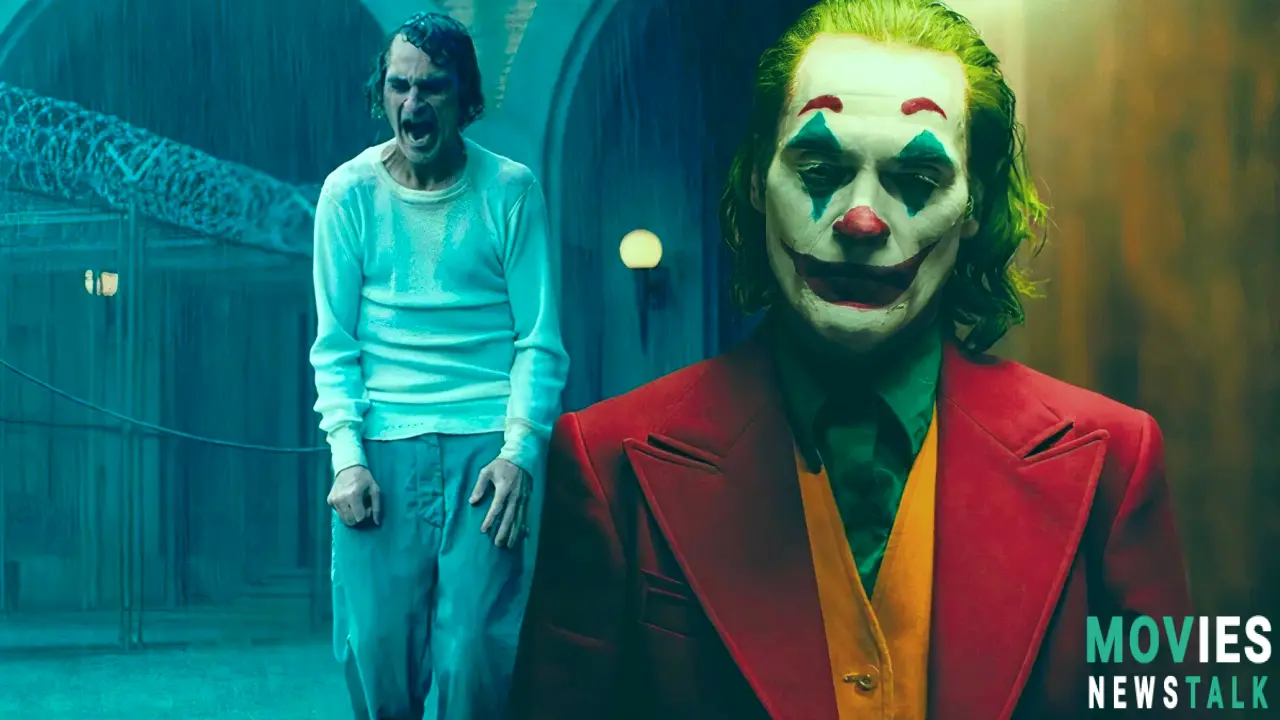The release of Joker: Folie à Deux brought out lots of questions about the beloved villain and his history. Everyone had so many different ideas about just what made this version of "Joker" so powerful.
The Villain's Mind:
It seems "Joker: Folie à Deux" really pushed the limits of exploring the mind of "Arthur Fleck", a tragic character, a potential victim of the environment. And also, possibly one with an insane amount of internal problems.
What Is Arthur's Mental Illness?
From the big reveal in the first movie, "Joker," to this fantastic follow-up "Joker: Folie à Deux." , fans of DC Comics and its villains have gotten to learn more than ever about the inner workings of this legendary villain.
As a whole the film focused on Arthur, giving us even more to ponder.
This included moments with "Arthur's" defense lawyers and even the doctor who had been observing his actions in an effort to understand the villain who went through a major change in the previous film, that showed him not only battling these challenges, but finding a different purpose to create the "Joker," a chaotic villain. It’s the perfect way to start another chapter of "Joker"!
Brain Injury
One of the many challenges "Arthur" goes through and is clearly on the mind of many is the laughter, that has never gone away! The "Joker" movie made this a big part of its storytelling, as he constantly suffers from laughing fits. That led to some really unique insight.
Fans got into it so much that lots of speculation came from those who watched it. It's a great example of the way a good movie can have you wondering what's true. In the movie, you don't really see the details. However, experts, even from the National Library of Medicine, believe that "Arthur" suffers from a condition known as a "pseudobulbar effect." What is especially interesting is that there is some debate around whether "Arthur's" laughing comes from a mental illness or if it is something tied to neurological disorders! And the experts think that the neurological disorders happen due to the trauma, that he experiences from "Arthur's" mother who has given him some really tough times!
Mental Illness or Disorders:
One thing's for sure, though the films might have explored a whole bunch of these complex mental issues, the truth is they haven't settled on a solid diagnosis for "Arthur Fleck."
So while there is this idea of "Arthur's" actions coming from these different mental problems, we have no way of knowing whether or not that is what they intended for us to believe!
This really shows what these films bring to their audiences and they do so much to really explore this with their story. You can even get this incredible exploration about what this "Joker" does. The main idea behind "Joker: Folie à Deux" is that "Arthur" goes on trial for all those events from the previous movie!
The defense tries their best to get him out of this difficult situation using their talents as "defense lawyers."
However, there's a whole lot more going on! They think "Arthur" has something that will really blow everyone away.
- There are these intense, interesting courtroom conversations that take place! They get a lot of different viewpoints in this setting, which could give some fascinating insight into what happens when the "Joker" takes a stand.
They want everyone to understand this man!
- This includes the doctor who examines him
- They give their arguments that "Arthur" suffers from something called "dissociative identity disorder" which is a lot more profound than we've heard from "Arthur." They have a way to push the boundary! There might be a connection to "Arthur" and his big changes into "The Joker!"
Another Side of The Coin:
The other major person who is central to the movie is a key prosecutor: "Harvey Dent." He's not trying to hold back with the full weight of his job, but makes sure everyone realizes how he really sees "Arthur."
What was his viewpoint on "Arthur", which could also change how we perceive "Arthur Fleck?" He had a perspective that is interesting, but he also focused on some key aspects, like a real concern that Arthur Fleck doesn't have this "dissociative identity disorder" that his lawyers were arguing was true.
"Dent also offered the other, but opposite view! And made the case that "Arthur" could have several problems.
- "Arthur" could be severely struggling with anxiety, loneliness, and "Post Traumatic Stress Disorder (PTSD)," and that all played a critical role in his mental state!
You could say it was a combination of these complex mental and emotional challenges that changed who he was into the "Joker!" The end result might just leave everyone wondering and have those who see it really ask, if there's some insight to how complex and troubling mental health truly is!
For those who have been so captivated by "Joker: Folie à Deux" and even those who haven't seen the movie it gives everyone the opportunity to talk about these big topics that are important to be discussed!
You may find that "Joker: Folie à Deux" has a lot of substance, and it will certainly have fans talking. In this story we see "The Joker" like we have never seen him before! And a very humanizing view of his story, even if the movie does not necessarily offer all the answers about his struggles. The movie offers lots to ponder for those who enjoy complex, dark and emotional journeys with one of "DC"'s most iconic villains!

